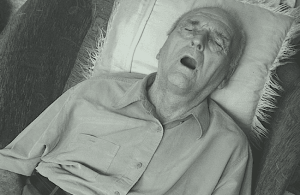Why Are You More Likely to Snore with Age?
As you age, you become more at risk for an array of health conditions. Plus, your body goes through a lot of changes.
For many people, wrinkles, loose skin, and gray hair are physical changes that generally become noticeable. There are many other changes though that are not so easily recognized.
Snoring happens to be one of them. You have never snored a day in your life and now your partner is complaining every morning about the sound you are making that’s keeping them awake.
Why Are You Suddenly Snoring?
Snoring is a sleep-disordered breathing condition that can develop at any time in your life. According to American Family Physician, a case study of more than 9,000 individuals 65 years and older revealed that more than half had a chronic sleep complaint.
The consequences of sleep loss can be significant, such as:
- Increased risk of falls
- Sleep-disordered breathing that affects the pulmonary, cardiovascular, and central nervous systems
- More susceptible to hypertension and sleep apnea
On average, elderly persons sleep less than younger people. They experience more nighttime awakenings, and the sleep-wake cycle tends to be fragmented.
Factors in Snoring
Poor sleep habits are the most common reasons for age-related snoring. Some tend to get up too early or take brief naps throughout the day. Quick naps may help you get through a tired slump, but they are no replacement for the deep sleep cycle your body needs to recharge.
Other factors include weight gain, medications, increased coffee intake, medical illness, stress, and psychiatric disorders.
Coping with Snoring
Snoring takes a toll on your health. Just because it is a common sign of aging does not mean you have to deal with it.
A snoring mouthpiece designed to help stop snoring may be useful. You can also try sleeping on your side, avoiding caffeine and alcohol, exercising during the day, and losing weight, if necessary.



